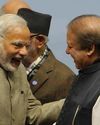THE NEW GUIDELINES FOR TAXI SERVICES ARE SENSIBLE, RATIONAL, AND MORE THAN WELCOME.

WHILE INDIA’S CITIES are supposed to be the harbin-gers of economic development, our urban transport system is far from perfect. Uber and Ola, the major online taxi aggregator platforms, operate under ambiguous legality, while the drivers attached to these aggregators are harassed (and in some cases even physically assaulted), and some states have even passed illiberal and irrational (yet populist) taxi regulations. The root of the problem can be traced to the statute regulating the use of motor vehicles in India.
The transport regulatory regime in India is a product of the bygone licence raj era. The Motor Vehicles Act of 1988 (MV Act) and the Central Motor Vehicle Rules of 1989 (CMVR) envision a regulatory regime that lays emphasis on licence-issuing by the Regional Transport Authorities and State Transport Authorities.
Since the MV Act is more or less an enabling legislation that allows each state to have its own set of rules and regulations, private players resort to loopholes. This has led to absurd situations, such as when buses registered in Arunachal Pradesh and Nagaland are seen plying in Hyderabad. This is a directl result of the MV Act and its outdated provisions.
While regulations that stifle growth are a feature in almost all sectors in the Indian economy, where the MV Act particularly falls short is with regards to the regulation of online aggregators. The regulation of taxis is under the purview of the central government, but state transport authorities are also allowed to enact rules, as states like Karnataka and Maharashtra have. Both have enacted regressive taxi regulation schemes which stifle market competition and over-regulate these sectors.
There is, however, some good news.
This story is from the August 2017 edition of Swarajya Mag.
Start your 7-day Magzter GOLD free trial to access thousands of curated premium stories, and 9,000+ magazines and newspapers.
Already a subscriber ? Sign In
This story is from the August 2017 edition of Swarajya Mag.
Start your 7-day Magzter GOLD free trial to access thousands of curated premium stories, and 9,000+ magazines and newspapers.
Already a subscriber? Sign In

Refuging Progess
There is a well-orchestrated global conspiracy to deny scientific and technological developments from the West to Third World countries.

The Monk Of Science
Vivekananda believed that Religion should be subjected to scientific methods of investigation. The third and concluding part of our series on the Swami and his views on science.
The Next Step
Indian technical manpower can be trained for high-value-added emerging services in the era of mass commoditisation of hardware.
The Threat Of Autarchy
The force of globalisation is an irreversible reality, and it is countries like India and China that will nurture it going forward.

Neanderthals: The Womb Of Caves
Recent discoveries indicate that Neanderthals may have had a rich inner life, including symbolic thought. Indeed, they may have been the progenitors of human religions.

Getting India's World Right
Incremental concessions will get India nowhere with Pakistan and China. What we need is a classically conservative foreign policy, based on realism.

The Hesitant Orbit
In order to march boldly ahead into the deep space, New Delhi must work towards building a station, boost its techno-economic planning and use the Indian Space Research Organisation smartly.

Nudges And Narratives
The debate surrounding Sanjay Leela Bhansali’s Padmavati brings India a complex network of portraits within a cultural world-system.

The Spell Of Specialisation
THE INDIAN ADMINISTRATIVE SERVICE NEEDS AN URGENT REJIG. THE KEY TO SPEED AND EFFICIENCY LIES IN PUTTING AN END TO A GENERALIST APPROACH AND IN GOING FOR A NEW SERVICE.
The Great Gamble
With demonetisation, the prime minister has taken a huge risk— both economic and political. He must succeed, because this move could transform both our economy and our society.